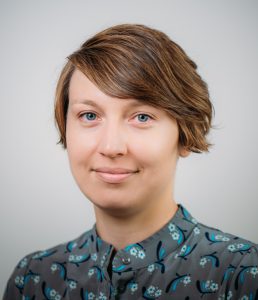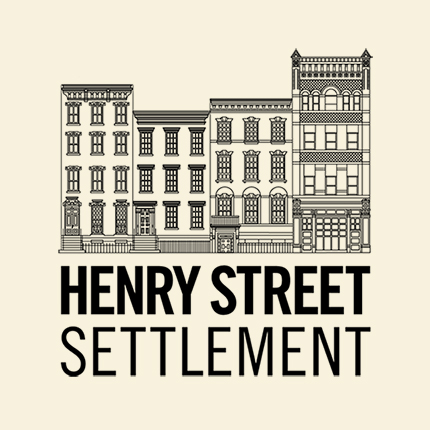Henry Street Settlement opens doors of opportunity for Lower East Side residents and other New Yorkers through social service, arts, and health care programs.
Hire With Henry Street: Mount Sinai Health System
January 21, 2025
 Reda Gudaityte is the Program Manager for Talent Diversity and Advancement in the Talent Acquisition Department at Mount Sinai Health System—where she has worked for eight years. In 2021, Henry Street reached out to Reda to see how our Workforce Development services could best serve this large system, and we have worked to connect Mount Sinai with talent ever since. Reda serves as the interface between partners like Henry Street and Mount Sinai’s recruiters. When she receives resumes from jobseekers, she often connects with candidates, seeking more information. Then she invites them to onsite interview days if appropriate.
Reda Gudaityte is the Program Manager for Talent Diversity and Advancement in the Talent Acquisition Department at Mount Sinai Health System—where she has worked for eight years. In 2021, Henry Street reached out to Reda to see how our Workforce Development services could best serve this large system, and we have worked to connect Mount Sinai with talent ever since. Reda serves as the interface between partners like Henry Street and Mount Sinai’s recruiters. When she receives resumes from jobseekers, she often connects with candidates, seeking more information. Then she invites them to onsite interview days if appropriate.
What are some of the challenges you face in filling positions?
Our biggest challenge in finding talent is simply that we are very, very large. Mount Sinai has several sites throughout New York City and Long Island, so we have many openings. With a total staff of close to 50,000 people, it’s a normal day when we have several thousand openings.
Can you describe your work in talent diversity and advancement?
My job is to make sure our jobs are available to all kinds of different people. For example, I work to ensure that we are recruiting veterans, people with disabilities, LGBT people, and people of color. We post job descriptions on boards that focus on minority communities. But what we do is a lot more than that. We work specifically with about 30 partner organizations that are part of specific communities that need to be represented.
How is Henry Street supporting your diversity and inclusion hiring efforts?
Our focus with Henry Street is on more of a geographic location where we could be missing available talent. Organizations like Henry Street can reach into a community where we might not have as much traction. When you think about diversity, people don’t just belong to one group. You can have a veteran with a disability who is a person of color—so that separation doesn’t always help.
What types of roles has Henry Street helped you fill?
The biggest impact has been in support services—entry-level roles that only need only a high school diploma or GED. A lot of those roles are housekeeping, maintenance, patient transport, linen clerks, and food service, often unionized. Although these are beginning jobs, there is so much room for growth, especially at a place like Mt. Sinai. You can get union benefits, educational opportunities, and we can move people into higher-level roles. It’s a great starting point if you’re looking to get into health care. These jobs are not just a paycheck; health care impacts all of us. There’s almost nothing more important.
What makes a good partnership with a workforce partner?
Two-way communication with a partner is not just nice; it’s really key. Without that, very little can be achieved. It’s like raising a child: the whole village needs to be involved. Jeanie Tung and Henry Street do that. We start working like co-workers, not just partners.
Do you have any advice for jobseekers?
When we go to diversity career fairs, jobseekers sometimes say, “I’ll do anything. What do you have open?” This doesn’t provide enough information for me to help people. I need to know their general focus. Doing basic research on the employer before connecting is “Job hunting 101.” The biggest challenge is if a candidate is not receptive to feedback—like, for example, on their resume. Learning can’t happen without people being able to take time to take feedback and process it. Sometimes people are not ready to absorb feedback. Our partners can help by moving their workforce clients to make these changes.
